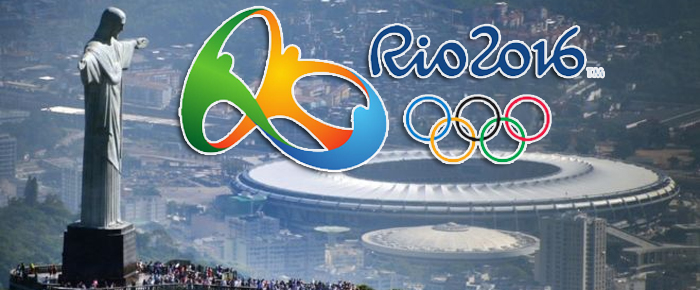
By Haddon Libby
The start of the Summer Olympics in Rio de Janeiro, Brazil are only a few weeks away. Much focus has been put on the dangerous Zika virus that is spread by mosquitoes and the filthy conditions that many will have to compete in. As one example, thirty-two tons of dead fish will be pulled out of the rowing and canoeing lagoons in advance of these events due to the horrific pollution levels.
Despite this, more than 10,500 athletes and 315 horses from over 200 countries will compete in more than 300 sports over seventeen days for 4,924 medals.
This year’s Olympics will be the first ever held in South America. The previous twenty-seven Olympics were held in Europe (16 times), North America (six times), Asia (three times) and Australia (twice).
More than 8,000 employees, 85,000 third party employees and 45,000 volunteers will be working at the Olympics. For comparison, the 2012 London Olympics had a total of 200,000 employees and volunteers.
Golf will be in the Olympics for the first competition since 1904 while Rugby returns after a ninety-two year hiatus.
There are 79 countries in this year’s games that have never won a medal. In fact, 154 of the 205 countries competing this year have won fewer medals than American swimmer Michael Phelps (22 medals).
The United States has won the most Summer Olympic medals of any country at 2,681. In a distant second place is the Soviet Union at 1,204, Great Britain at 806, Germany with 782 and France at 780.
The first American to win an Olympic medal was James Connolly in 1896 for the “Hop, Skip and Jump” (now known as the Triple Jump). He almost did not attend the Olympics as the university that he attended (Harvard) would not allow him an absence to participate. As such, Connolly left school and boarded a German freighter that took him to 1896 Athens Games. When he won his first place medal, it was actually silver and accompanied by an olive branch. Back then, awards were given for first and second place only. In a fitting end to this story, Harvard offered Connolly a honorary doctorate fifty-two years later…which he promptly refused.
While the modern Olympics began in 1896 in Athens, the very first Olympics were more than 1,100 years earlier in 776.
You may not know it but gold medalists do not receive gold medals. What they actually receive is a composite that is 93% silver metal, 6% copper and 1% gold. The last time an athlete received an actual gold medal was in 1912 while the first was given out was 1904.
Also in 1912, the arts were added to the Olympics. Baron Pierre de Coubertin, the father of the modern Olympics, felt that art and culture should be part of the Olympics so he added awards in sculpture, literature, painting, music and architecture. The Baron won the first gold medal for architecture (coincidence?). These categories continued in the Olympics until 1948 when it was determined that these professions did not meet the definition of an amateur and were excluded from the games. While professionals were added in the late 1980s, these events were not reinstated.
While seventeen days can seem like a long time, it is nothing compared to the 1908 London Games which started in April and did not end until October.
While the Russian track and field team will be banned from this year’s Olympics for using banned substances while training, they are not the first to have cheated. That award goes to Hans-Gunnar Liljenwall of Sweden in 1968. What was his drug of choice? Two beers. He lost his bronze medal because of this.
Haddon Libby in an Investment Advisor for Winslow Drake and can be reached at 760.449.6349 or HLibby@WinslowDrake.com.











































